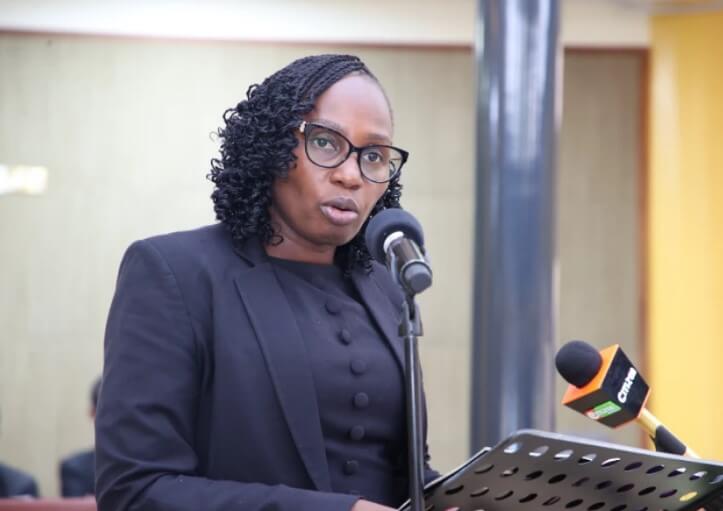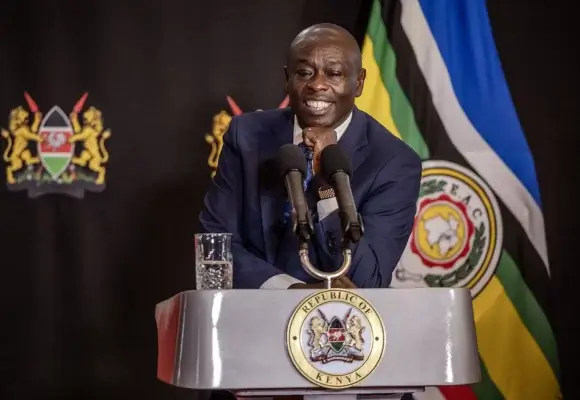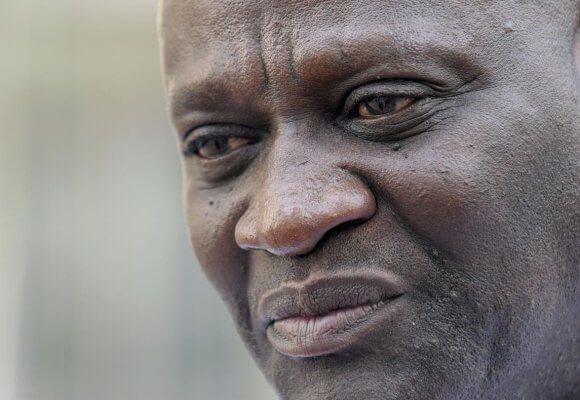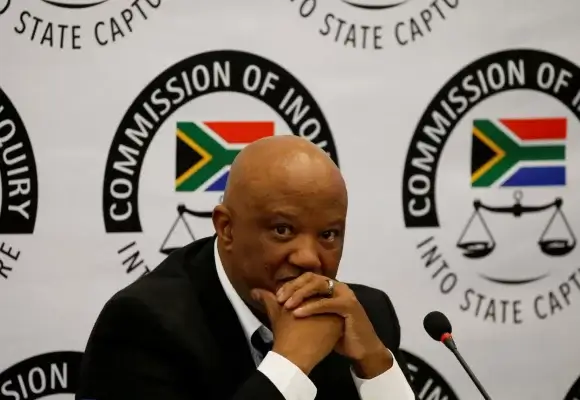|
LISTEN TO THIS THE AFRICANA VOICE ARTICLE NOW
Getting your Trinity Audio player ready...
|
The ongoing delay in reconstituting the Independent Electoral and Boundaries Commission (IEBC) has drawn sharp criticism from the Law Society of Kenya (LSK), which Tuesday warned that the judicial gridlock is undermining citizens’ right to representation and threatening the integrity of the electoral system.
Faith Odhiambo, the LSK President, addressed the mounting frustration over what she described as the abuse of judicial processes, which has resulted in prolonged vacancies in the IEBC, a key body responsible for overseeing elections and maintaining electoral fairness. Her remarks follow a series of legal challenges that have stalled the formation of a nine-member selection panel crucial to the appointment of new IEBC commissioners.
“The continuous delay in the reconstitution of the IEBC is a direct violation of the Constitution,” Odhiambo stated, noting that the absence of commissioners leaves constituencies with pending by-elections without proper representation. She highlighted the risks posed by the inability of the IEBC to perform its duties, including conducting by-elections and managing other critical electoral tasks.
The crisis began with a nomination dispute within the Azimio La Umoja One Kenya coalition, which sought to nominate a representative to the IEBC Selection Panel. Augustus Kyalo Muli, nominated by Azimio, faced legal challenges from the Wiper Party, which argued that Muli’s party, the National Liberal Party (NLP), had no representation in Parliament — a requirement for the position.
In the ensuing legal battle, the High Court ruled in favor of the Wiper Party, disqualifying Kyalo and ordering Azimio to nominate a new representative. Following the ruling, Koki Muli was selected to replace Kyalo. However, the legal wrangling did not end there, as Kyalo moved to the Court of Appeal to contest the High Court’s decision.
Meanwhile, another petition, filed at the Kiambu Law Court, challenges the exclusion of persons with disabilities from the selection panel. This petition further delays the establishment of the panel, as the court has yet to issue a ruling on the matter.
This legal standstill has created a vacuum in the IEBC, with no commissioners in place to conduct essential electoral functions. The absence of a fully operational IEBC is especially concerning with by-elections pending across the country.
Odhiambo called on the judiciary to prioritize the resolution of the pending cases, noting that the prolonged delays are not only frustrating but also damaging to Kenya’s democratic processes. “The judiciary must act decisively to resolve these matters and restore the full functionality of the IEBC,” she urged.
In addition to urging judicial intervention, Odhiambo also appealed to political leaders to explore alternative solutions, such as out-of-court settlements, to expedite the resolution of the selection panel crisis. “We cannot afford to delay the formation of the IEBC any longer. The credibility of our elections depends on it,” she said.
The prolonged stalemate has sparked wider concerns about the functionality of Kenya’s electoral body. Experts warn that the continued absence of a fully staffed IEBC risks eroding public confidence in the electoral system and may hinder the peaceful conduct of future elections.











LEAVE A COMMENT
You must be logged in to post a comment.